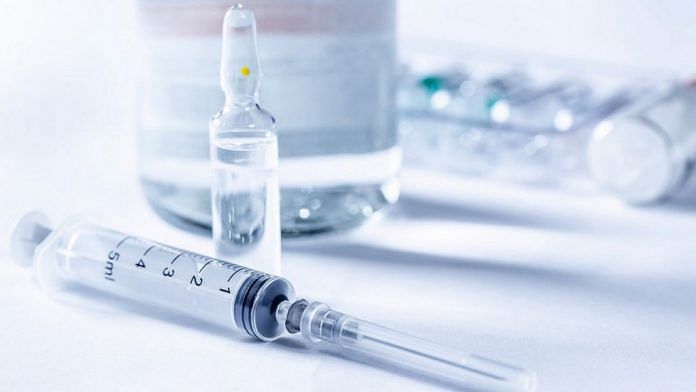The second wave of Covid-19 hit us hard, leaving a trail of morbidity and mortality that no one was prepared for. While inadequate infrastructure contributed to deaths, it is now clear that there was a more fundamental underpinning to the devastation: the lack of good drugs to treat patients and save lives.
Developing an efficacious drug requires a deep understanding of the disease process, followed by an identification of cellular mechanisms that can be disabled by drugs. In the case of Covid-19, the key mechanisms of infection, such as the receptor used by SARS-CoV-2 for entry into the cell and the machinery it uses for replication, were rapidly figured out by scientists by March 2020. Armed with this knowledge, pharmaceutical companies embarked on a low-hanging fruit approach, which is to repurpose drugs developed for treating other conditions.
Studies of remdesivir
Consider the example of remdesivir, a drug that was originally developed for the treatment of Ebola. It had been previously taken through Phase-1 studies and found to be safe, and could therefore be quickly rushed into efficacy trials for treating Covid-19. Other drugs that had been in the market for years, such as hydroxychloroquine, ivermectin, interferon-β, camostat, and bromhexine, were also pushed into clinical studies. Many of these studies were underpowered and small, and the results were conflicting and, in many cases, inconclusive. Eventually, the WHO undertook a series of large ‘Solidarity Trials’, opening enrollment to centres across the world to test a set of four drugs that showed the most promise. Unfortunately, not a single drug or drug combination withstood the rigour of a randomised, controlled clinical trial of reducing mortality, initiation of ventilation or hospitalisation duration.
When a drug fails in human clinical trials, it can mean that it translated poorly from laboratory studies. But it is also possible that study designs were flawed. For example, remdesivir inhibits the replication of SARS-CoV-2 in vitro. Therefore, its most logical use would be in the first phase of the infection when the virus is rapidly replicating. In clinical trials, Gilead Sciences tested it on hospitalised patients with proven Covid-19 infection and pneumonia without the need for oxygen supplementation. It is presumed that these patients were in the first phase of the infection.
Upon analysis of the data, little benefit was found but it was not probed further and emergency use authorisation was granted by the US Food and Drug Administration (FDA). Other trials such as the WHO’s Solidarity Trial did not demonstrate any efficacy for the drug. In the real world, usage was determined by one key factor: remdesivir’s availability only as an intravenous formulation. This meant that only people admitted to the hospital could be administered the drug. It is very likely that many who received the drug were in the second phase of the disease when the pathology was driven by a dysfunctional immune response, rather than actively replicating the virus. The routine RT-PCR test for Covid-19 would have been insufficient because it does not distinguish between the presence of a live and a dead virus. The lack of an appropriate companion diagnostic test likely compromised any value the drug had.
Also Read: India has a remdesivir problem — doesn’t know where to get it, unsure if it treats Covid
Patient-centric diagnostic tests
This idea of using a test to identify patients was illustrated in a recent study of REGEN-COV (casirivimab and imdevimab), an antibody cocktail used to treat SARS-CoV-2. Half of the patients were given REGEN-COV and the other half received standard care. At the time of enrollment, researchers measured levels of antibodies in the participants. At the end of five days of treatment, the results showed that the drug reduced the risk of death by a fifth, but only in those who had not developed any antibodies, i.e. those who were seronegative at the time of enrolment. When the data was analysed without accounting for antibody status, no effect of the drug was discernible. This led trial investigator and Oxford professor Martin Landray to comment that patients should be tested for antibody levels prior to starting treatment. I would add that a test for the presence of a live, replicating virus may additionally impact efficacy.
The failures of drug development of the past year should not hold us back from the pursuit of new drugs. After all, vaccines can prevent deaths, but cannot eliminate infections completely. The recent announcement that the US government has earmarked a fund of $3.2 billion to develop new antivirals is in the right direction. This time around, pharmaceutical companies must work in tandem with diagnostics developers to ensure that drugs deliver real value to patients and fill the medicine cabinet.
Dr. Radha Rangarajan is Co-founder, Vitas Pharma and CSO, HealthCubed. Views are personal.
(Edited by Srinjoy Dey)



